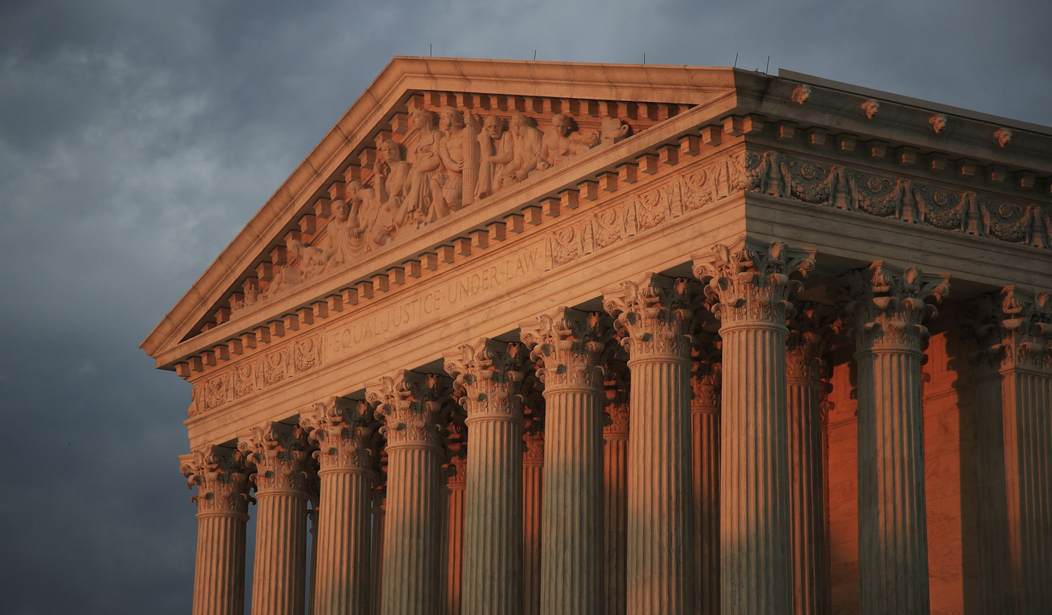Tyson Timbs, an Indiana man desperate for money to support his heroin habit, did exactly what the cops asked him to do: sell them 4 grams of the drug in two transactions for a total of $385. His reward was a year of home detention, five years of probation and $1,200 in court-ordered fees.
Adding insult to injury, police seized the 2012 Land Rover that Timbs had bought with $42,000 from his father's life insurance payout. In a case that could lead to limits on the system of legalized theft known as civil asset forfeiture, the Supreme Court is considering whether Timbs can challenge the confiscation of his car as a violation of the Eighth Amendment's ban on "excessive fines."
An Indiana judge rejected the forfeiture on that basis, deeming it "grossly disproportional to the gravity of (Timbs') offense." A state appeals court agreed, noting that Timbs' car cost four times the maximum fine for his drug felony.
The Indiana Supreme Court reversed that decision. "The United States Supreme Court has never enforced the Excessive Fines Clause against the States," it said, "and we opt not to do so here."
It's true that the Supreme Court, which will hear oral arguments in Timbs' case on Wednesday, has never explicitly held that the Excessive Fines Clause, like the rest of the Eighth Amendment and almost all the other guarantees in the Bill of Rights, applies to the states via the 14th Amendment. But it's hard to see why the Court would not reach that conclusion.
As Timbs' lawyers at the Institute for Justice note, concerns about the abuse of fines date back at least as far as the Magna Carta and have been a persistent theme in U.S. constitutional history. The prohibition of excessive fines is therefore "fundamental to our scheme of ordered liberty" and "deeply rooted in this Nation's history and tradition," the usual test for whether a right is "incorporated" in the 14th Amendment's Due Process Clause.
Recommended
Recognizing the problems with the incorporation doctrine's reliance on the slippery and seemingly oxymoronic concept of "substance due process," the Institute for Justice argues that the 14th Amendment's protection of each citizen's "privileges or immunities" provides an "alternative basis" for applying the Excessive Fines Clause to the states. "Like the right to keep and bear arms," it says, "the right to be free from excessive fines fits comfortably within the original public meaning of the Privileges or Immunities Clause."
Indiana, for its part, only halfheartedly argues that the Excessive Fines Clause does not apply to the states, saying "the better interpretation" is that the clause does not apply to civil forfeitures, which are notionally actions against assets rather than owners, who need not even be charged with a crime to lose their property. Unfortunately for Indiana, the Supreme Court unanimously rejected that argument in 1993, when it ruled that federal civil forfeitures can be constitutionally excessive because they are a form of monetary punishment.
Applying the Excessive Fines Clause to the states therefore should help curtail a racket that lets police "seize property with limited judicial oversight and retain it for their own use," as Justice Clarence Thomas recently described it, noting that civil forfeiture "has led to egregious and well-chronicled abuses." The profiteering is especially blatant in Indiana, where private attorneys pursue civil forfeitures on behalf of the state in exchange for a share of the loot.
What purpose is served by taking away Timbs' car, aside from raising money for mercenary lawyers and greedy law enforcement agencies? "I committed a crime, then I did my time and cleaned up my life," Timbs says. "They are trying to take away one of the few things I own -- that I bought with money from my dad. Forfeiture only makes it more challenging for people in my position to clean up and become contributing members of society."
The financial incentives created by forfeiture invite abuse. When punishment is profitable, justice suffers.

























Join the conversation as a VIP Member